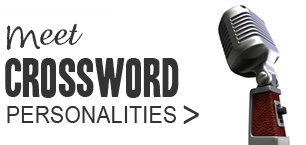
1. Season well (6)
2. Bound to jump (6)
Both have plausible surfaces and two accurate definitions that lead to the answer SPRING. And yet, the first is a pure dd, the second does not.
The two definitions in a proper double definition clue are expected to have two entirely different meanings. In the first clue, "season" (as in autumn, winter, spring) and "well" (as in, source of water) are unrelated meanings. That is not the case in the second clue - "bound" and "jump", when they mean "spring", are synonyms.
More examples of duplicate definitions:
Guardian 25246 (Quantum): Can't be defended, having no grounds (13) UNJUSTIFIABLE
THC 9702 (Neyartha): Authentic novel (8) ORIGINAL
Are duplicate definitions acceptable?
By Ximenean norms, no. Most solvers will call such clues out as defective, but I've come across some compelling arguments in favour of treating the duplicate definiton clue as a valid clue type.
Uncle Yap, long-time blogger on fifteensquared and Times for the Times, uses a unique classification "dud" to distinguish such clues from normal dds and says that duplicate definitions strung together can sometimes create a surface as misleading and pleasing as a regular dd. This is indeed true of clues like:
Guardian 24840 (Rufus): Sends away for books (6) ORDERS
Guardian 24976 (Rufus): Mint that's still unwrapped? (6) UNUSED
The misdirection in such clues comes from synonyms posing as different parts of speech on the clue's surface. In reality, the two definitions mean the same.
An easy test for duplicate definitions
Construct a sentence where the two definitions can be interchanged without affecting the meaning of that sentence. If you can come up with such a sentence, then the two definitions are duplicate definitions.
Identify the clue type – dd or dud?
A little exercise for you – check if these clues are true double definitions or not.
1. THC 10124 (Gridman): Satisfying session (7) MEETING
2. THC 9910 (Gridman): Fancy a fabled creature? (7) CHIMERA
3. Guardian 25293 (Rufus): Unqualified to make a statement (5) UTTER
4. Guardian 25314 (Shed): Nut loaf (4) HEAD
5. THC 9675 (Neyartha): Care to help? (3) AID
6. Guardian 24850 (Rover): A Frenchman's charge for electricity (7) COULOMB
7. Guardian 24534 (Enigmatist): Capable of doing no more? (2,2) UP TO
What’s your take? Are duplicate definition clues flawed dds, or do you think they work as well as any other cryptic device?
Related Posts:
If you wish to keep track of further articles on Crossword Unclued, you can subscribe to it in a reader via RSS Feed. You can also subscribe by email and have articles delivered to your inbox, or follow me on twitter to get notified of new links.








 Follow on Twitter
Follow on Twitter Join us on Facebook
Join us on Facebook Get RSS
Get RSS

6 comments
I find 5 to be the most tenuous amongst the lot, though even that seems to be borderline-acceptable.
4 can't be dubbed as a DuD, I'd rather classify it as DCD - I find both the allusions to head cryptic.
1,2,3 and 6 are normal DDs, while 7, which I like the most, is more of a D&CD.
Personal standpoint first – I don’t like duds (I must thank Uncle Yap for that neologism; it’s a very nice addition to the cryptic language) but only to the extent that I will avoid writing such a clue. That isn’t to say I believe a dud is technically weak; it is, quite simply, a feeling that there is a touch of laziness associated with writing it, and a fear that solvers will view it in the same way.
The UNJUSTIFIABLE and ORIGINAL clues leave me pretty cold; in fact the former comes across as a straight definition (and even then it’s inaccurate – ‘can’t be defended’ falls a long way short of matching the tense of the answer). Yet, even though the Rufus clues for ORDERS and UNUSED are far cleverer in terms of being misleading, the realisation on solving that the two definitions are fundamentally the same takes the shine off. Not everyone will feel that way, though, and that’s precisely the point.
It may be argued that the primary purpose of a cryptic clue is to mislead. Despite the clues for ORDERS and UNUSED falling into the ‘dud’ category, they have fulfilled that main objective, so it can’t really be argued that they don’t work as cryptic clues.
I have no objection to duplicate definitions if they lead to a single answer of the indicated length. In the case of "Bound to jump", PRANCE and POUNCE are everyday words that a solver might think of before SPRING, so I'd say the clue is unfair. But I've seen other ones that are not ambiguous - either there's only one word of the right length, or one possibility is much more common than an obscure alternative.
As far as I can tell, Ximenes himself said nothing about this issue in his book.
When I first started setting puzzles many years ago, I made an elementary error of going to the Thesaurus and picking out two words that would read well together for a double definition clue. My learned moderator, Dr Brian Skinner soon disabused me of this flawed process of pairing two etymologically linked words as a dd ... water from the same well, so to speak.
This made me very aware that a dd should have two meanings which have very different roots; just like the 4 examples in Don Manley's excellent standard, Chambers Crossword Manual.
When I started blogging the daily puzzles on FifteenSquared and TimesForTheTimes, I came across established setters who occasionally fell into the same trap of using linked words as a dd; which caused me to coin the term "duplicate definition" or "dud".
I have since realised that it is possible to have a dud which reads very cryptic and be as misleading as any other cryptic device, especially when crafted by seasoned compilers like the smooth Rufus/Dante.
With duds, as with unindicated D-by-Es, I've gone through a change of heart. Till a couple of years back I would brand them flawed without question. Not so anymore. I can see grey areas now - there can be bad pure dds and good duplicate definitions. How the clue works as a whole seems more important now than taking it apart and scrutinizing its pieces.
If a dud clue has a meaningful, misleading surface and a clever answer then I am fine with it.
Clue#4 "Nut loaf (4) HEAD" is a good example of this type.
@Shyam: Agree with you about the clues you like the most and the least in the lot.
It doesn't matter that one or both of the definitions are cryptic; for identifying a dud, what's relevant is whether or not the definitions share meaning or come from the same source. "Water from the same well", as Uncle Yap puts it.
e.g. In #6, the unit of electric charge Coulumb is named after the Frenchman Charles-Augustin de Coulomb. So, even though the clue has two definitions, the definitions are etymologically linked.
Post a Comment